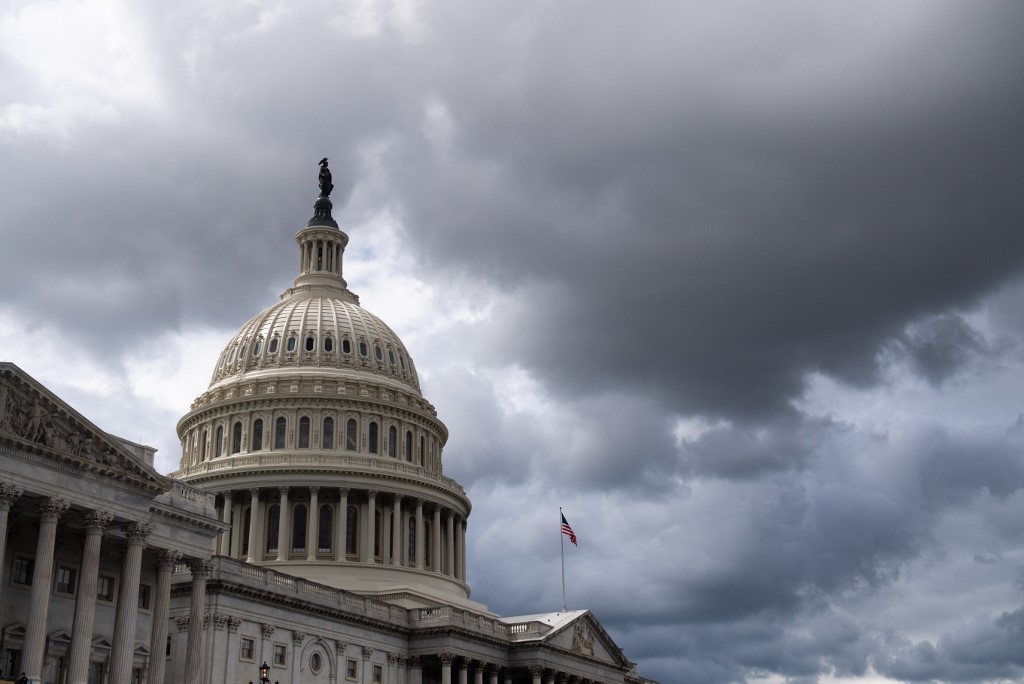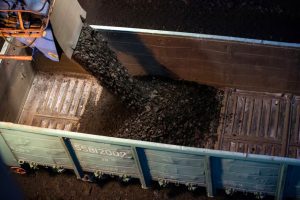The Biden administration has prepared an initial package of sanctions against Russia that includes barring US financial institutions from processing transactions for major Russian banks, three people familiar with the matter said.
The measures – which would only be implemented if Russia invades Ukraine – aim to hurt the Russian economy by cutting the “correspondent” banking relationships between targeted Russian banks and US banks that enable international payments.
While US authorities have said banking restrictions would be part of a package of possible sanctions, the administration’s plan to cut correspondent banking ties, which underpin global money flows, has not previously been reported.
The United States will also wield its most powerful sanctioning tool against certain Russian individuals and companies by placing them on the Specially Designated Nationals (SDN) list, effectively kicking them out of the US banking system, banning their trade with Americans and freezing their US assets, the same sources said.
The White House and Treasury Department declined to comment.
The sources said the package could change up to the last minute and it was unclear who the targets would be. However, they believe top Russian financial institutions including VTB Bank, Sberbank, VEB, and Gazprombank are possible targets.
Experts said that while the correspondent banking tool lacks the punch of an SDN designation, which freezes a bank’s assets, they could still deal a meaningful blow to the target banks by making it difficult to transact in US dollars, the global reserve currency.
Much of global trade is transacted in dollars.
It is unclear whether Russian banks would be added to the SDN list, but both types of sanctions could hit Russia hard.
“Since a significant number of global trade transactions are in US dollars this is a sanction with bite, but without the more complicated and deadly sanction of being placed on the SDN list and having all assets in the US or in the hands of US persons frozen,” Washington lawyer Kay Georgi, who specialises in international trade, said.
Sources noted that the administration could exempt certain transactions from the restrictions if deemed necessary.
Biden-Putin Could Meet: Macron
News of the sanctions package emerged prior to a flurry of phone calls by European leaders late on Sunday, which led to speculation that Biden could meet his Russian counterpart, provided Putin retains faith in a diplomatic resolution of the crisis.
French President Emmanuel Macron said on Monday that Biden and Putin had agreed in principle to a summit over Ukraine, as a possible path out of one of the most dangerous European crises in decades.
Macron’s office said in a statement he had pitched to both leaders a summit on “security and strategic stability in Europe.”
The White House said in a statement that Biden had accepted the meeting “in principle” – but only “if an invasion hasn’t happened.”
“We are always ready for diplomacy,” White House Press Secretary Jen Psaki said. “We are also ready to impose swift and severe consequences should Russia instead choose war.”
Many details about the proposed summit – announced after a volley of phone calls between Macron, Biden, Putin, Zelenskiy, and British Prime Minister Boris Johnson – are not clear.
Macron’s office and the White House said the substance of the summit would be worked out by US Secretary of State Antony Blinken and Russian Foreign Minister Sergei Lavrov during their meeting planned for Thursday (February 24). What role Ukraine would play in the summit, if any, was also uncertain.
Biden said late last week he was convinced his Russian counterpart had decided to proceed with an invasion.
A US official said last night that the summit was “completely notional” as the timing and format had yet to be determined.
‘Upfront Costs’
The US administration has been threatening tough banking sanctions against Russia for weeks in a bid to deter Russian President Vladimir Putin from invading Ukraine. Moscow has amassed upwards of 150,000 troops on Ukraine’s borders, but Putin has denied plans to launch an attack.
Peter Harrell, who sits on the National Security Council, said last month that “heavy hitting financial sanctions” were part of a strategy to hurt Russia’s economy but spare its citizens.
“The goal of the financial sanctions is really to have short-term upfront costs on Russia, to trigger capital flight, to trigger inflation, to make the Russian central bank provide bailouts to its banks,” he said in a speech late last month.
The tough warnings have put some US financial firms on edge. Members of the financial services and payment industries have been in touch in recent days with the US Treasury Department’s Office of Foreign Assets Control, which administers sanctions, sources said.
Tensions grew over the weekend as Russia extended military drills in Belarus, heightening fears among Western powers of an imminent Russian invasion of Ukraine.
British Prime Minister Boris Johnson said the United States and Britain would cut off Russian companies’ access to US dollars and British pounds if the Kremlin orders an invasion.
The Biden administration has been similarly aggressive in its rhetoric. In a briefing on Friday, Deputy National Security adviser Daleep Singh told reporters that the cost to Russia of an invasion would be “immense, both to its economy and its strategic position in the world.”
- Reuters with additional editing by Jim Pollard
ALSO READ:
Ukraine Conflict Would Have ‘Uneven’ Asia-Pacific Impact
Oil Bounces Back After Ukraine Rebels Claim Attack by Kyiv
Worries Over Ukraine Invasion Hit US Stocks, Lift Oil Prices
























